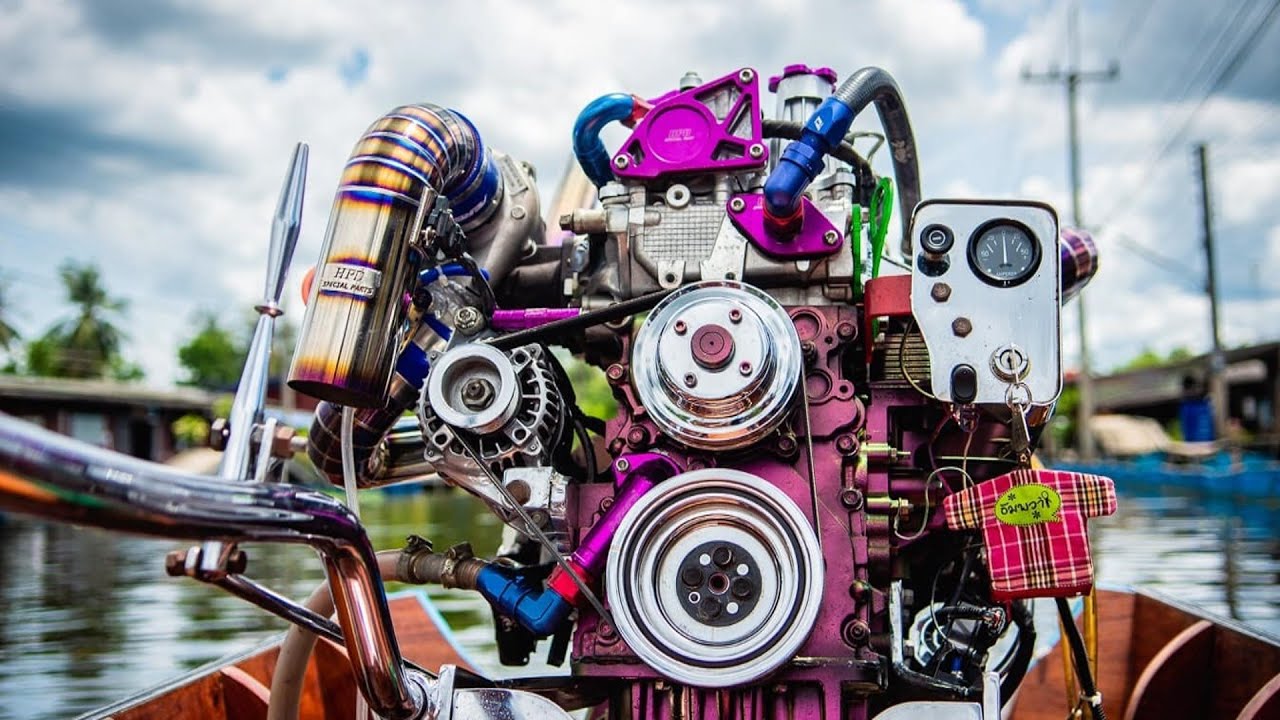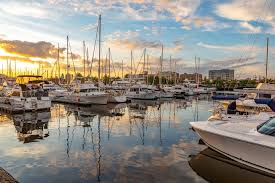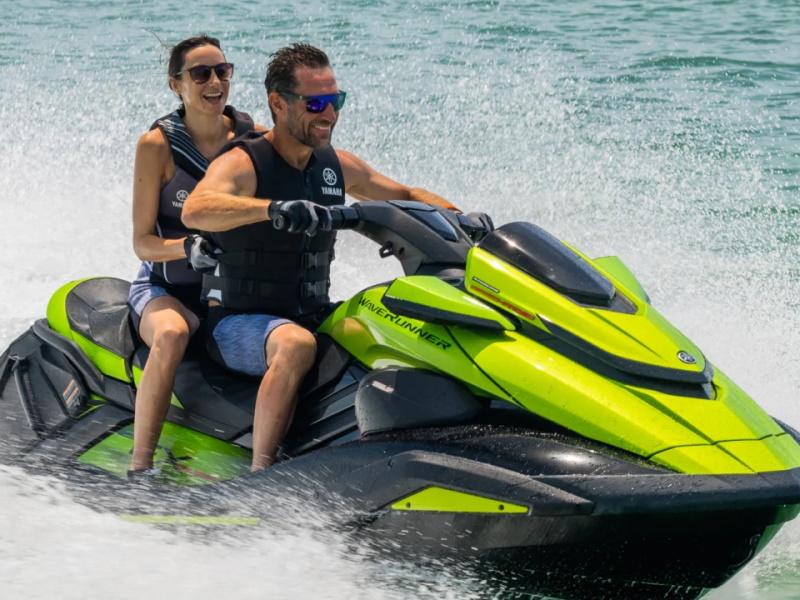Ready for Boat Camping? Here's Your Must-Read Guide Before You Hit the Water!
Boat camping offers a unique way to enjoy the outdoors. It lets you reach remote spots and have a quiet time away from busy campgrounds. Boat-in camping involves getting to a campsite by water instead of land. This can mean using a canoe, kayak, or motorboat to access your camping spot.

Getting ready for a boat camping trip takes some planning. You need to think about what gear to bring and how to pack it safely in your boat. It's important to bring the right camping equipment that works well on and near water. This includes things like waterproof bags and floating lights.
Boat camping can be a fun adventure for people who like being on the water. It mixes boating with camping to create a special outdoor experience. With some preparation, you can enjoy sleeping under the stars after a day of paddling or sailing.
Key Takeaways
- Boat camping lets you reach secluded campsites only accessible by water
- Proper planning and packing are crucial for a safe and enjoyable trip
- Boat camping combines water activities with traditional camping experiences
Preparing for Your Boat Camping Adventure
Getting ready for a boat camping trip takes careful planning and the right gear. Here's what you need to know to make your adventure safe and fun.
Choosing the Right Watercraft
Pick a boat that fits your needs and skill level. Canoes work well for calm waters and easy portaging. Kayaks are great for solo trips or tight spaces. Motorboats offer speed and comfort for longer journeys.
Think about the number of people and amount of gear you'll carry. Make sure the boat can handle the weight. Check that it's stable enough for your planned activities.
Consider renting if you're new to boat camping. This lets you try different types before buying. Always check the boat's condition before setting out.

Essential Boat Camping Gear
Life jackets are a must for everyone on board. Choose ones that fit well and are approved for boating. Bring extra flotation devices for safety.
Pack a waterproof first aid kit and emergency flares. Include a map and compass for navigation. A GPS device can be helpful but don't rely on it alone.
Invest in good quality dry bags to keep your gear dry. These are essential for clothes, sleeping bags, and electronics.
Bring a waterproof flashlight and extra batteries. A multi-tool can be handy for repairs. Don't forget sunscreen, hats, and sunglasses for sun protection.
Packing Checklist for Boat Camping
Start with camping basics: tent, sleeping bags, and sleeping pads. Choose gear that's lightweight and compact to save space.
Pack clothes in layers. Bring quick-dry options and rain gear. Include sturdy water shoes and a warm hat for cool nights.
Bring a camping stove and fuel. Pack easy-to-prepare meals and snacks. Don't forget a water filtration system or purification tablets.
Here's a quick list of essentials:
- Tent and ground cloth
- Sleeping bags and pads
- Cooking gear and food
- Water containers and treatment
- Toiletries and towels
- Trash bags
- Repair kit for boat and gear
Safety Measures and Navigation
Always check the weather forecast before your trip. Tell someone your plans and expected return date.
Learn and follow boating rules and regulations. Know how to read water conditions and spot potential hazards.
Practice basic boat handling skills. Know how to steer, dock, and handle emergencies. Learn how to right a capsized boat if needed.
Bring navigation tools and know how to use them. A waterproof map, compass, and GPS can help you stay on course. Mark your route and potential campsites before you leave.
Carry a whistle or horn for signaling. A waterproof phone case can protect your device for emergency calls. Always wear your life jacket when on the water.
Setting Up Your Campsite
A well-planned campsite can make or break your boat camping trip. Careful location selection, essential gear, and proper boat security are key to a great experience.
Selecting the Ideal Location
Look for a flat, dry area above the high water mark when choosing your campsite. Clear the ground of rocks and sticks for comfort. Avoid spots under dead trees or near ant hills.
Pick a place with natural wind protection if possible. Trees can block strong gusts, making your stay more pleasant. Check local rules about campfire locations and restrictions.
Consider proximity to water for easy access. But don't camp too close to shore to respect wildlife and prevent erosion. A good spot balances convenience with environmental care.
Campsite Essentials and Setup
Start by setting up your tent on level ground. Use a tarp underneath for extra protection. Arrange your sleeping bag and pad inside for a cozy night's rest.
Set up your camping stove in a clear area away from your tent. Bring a folding table and chairs for meal prep and relaxation. Keep food in sealed containers to avoid attracting wildlife.
Essential gear list:
- Tent
- Sleeping bags and pads
- Camping stove and fuel
- Water containers
- First aid kit
- Flashlights or headlamps
Organize your gear for easy access. Keep frequently used items handy. Store everything in waterproof bags to protect from moisture.
Securing the Boat Overnight
Proper boat security ensures peace of mind while you sleep. Use a sturdy anchor appropriate for your boat size and the lake bottom type. Set it a good distance from shore to prevent beaching.
If possible, use two anchors for added stability. This is especially important in areas with changing winds or currents. Check your boat's position regularly, especially after weather changes.
Remove valuable items from the boat and store them in your tent. Cover the boat with a tarp if rain is expected. This protects your gear and makes morning departure easier.
Food and Water Needs
Proper meal planning and water management are key to a successful boat camping trip. Careful preparation ensures you stay energized and hydrated while enjoying the outdoors.
Storing and Preparing Meals
Choosing the right food and cooking equipment is crucial for boat camping. Pack non-perishable items like dried fruits, nuts, and canned goods. These foods last longer and take up less space.
A compact camping stove is essential for cooking hot meals. Select one that's stable on a boat and uses fuel that's easy to transport. Bring lightweight, stackable cookware to save space.
Plan simple, one-pot meals to minimize prep time and cleanup. Pre-cut vegetables and meats at home to save time on the boat. Store food in airtight containers to keep it fresh and prevent spills.
Use a cooler to keep perishables cold. Pack it with ice or frozen gel packs. Place frequently used items on top for easy access.
Water Purification and Hydration
Staying hydrated is vital when boat camping. Bring more water than you think you'll need. Plan for at least one gallon per person per day.
Store water in large jugs or collapsible containers to save space. Keep drinking water separate from water used for cleaning or cooking.
Water filtration is important if you plan to use natural water sources. Bring a reliable water filter or purification tablets. These remove harmful bacteria and parasites from lake or river water.
Consider a gravity-fed water filter system for easy, hands-free purification. Alternatively, boil water for at least one minute to make it safe for drinking.
Keep reusable water bottles handy for each person. Fill them regularly to ensure everyone stays hydrated throughout the day.
Camping Hygiene and Environmental Responsibility
Proper hygiene and environmental care are vital for boat camping. These practices keep campers healthy and preserve nature for future visitors.
Leave No Trace Principles
Leave No Trace principles help protect the environment during boat camping trips. Plan ahead to reduce waste. Bring reusable items instead of disposables. Use biodegradable soap for washing. Avoid disturbing plants and animals.
Pack out all trash, including food scraps. Don't leave anything behind at campsites. Choose a campsite with minimal impact on the land. Use existing fire rings if available.
Wear sunscreen and sunglasses for sun protection. Apply sunscreen before getting in the water to avoid polluting it. Bring eco-friendly toiletries in small containers to save space.
Waste Management and Sanitation
Proper waste management is crucial for boat campers. Bring a portable toilet or use designated facilities when available. Pack out all waste, including toilet paper, in sealed bags.
Carry hand sanitizer for quick cleaning. Wash hands often, especially before handling food. Keep a separate bag for dirty clothes and towels.
For dishes, use biodegradable soap and strain waste water. Dispose of it on land, away from water sources. Store food securely to avoid attracting wildlife.
Bring enough fresh water for drinking, cooking, and cleaning. Treat natural water sources before use. Always pack extra toilet paper in a waterproof container.
Leisure Activities and Enjoying the Wilderness
Boat camping opens up a world of outdoor fun. You can fish, explore, and soak in nature's beauty right from your floating home base.
Fishing and Boating Activities
Fishing is a top boat camping pastime. Pack your rods and tackle to catch bass, trout, or catfish. Many lakes and rivers offer great spots to drop a line. Early mornings and evenings are often the best times to fish.
Boating itself is a fun activity. Go for relaxing cruises to take in the scenery. Or try water sports like tubing or waterskiing if your boat is equipped. Canoeing is another option for a peaceful paddle.
Swimming is refreshing on hot days. Look for calm coves or beaches to take a dip. Always check water conditions and follow safety rules.
Hiking and Exploring Local Scenery
Many boat-in campsites give access to hiking trails. Pack good shoes and a map to explore on foot. You might find waterfalls, viewpoints, or wildlife.
Lake Jocassee in South Carolina is known for its scenic hikes. Other lakes often have trails along the shore or into nearby forests.
Take binoculars to spot birds and animals. Bring a camera to capture the views. Remember to stay on marked paths and practice "Leave No Trace" principles.
For a mix of comfort and nature, some spots offer glamping options. These provide amenities while still letting you enjoy the outdoors.
Ending Your Trip: Cleanup and Leave-Taking
Proper cleanup and maintenance are crucial when ending your boat camping trip. These steps ensure you leave the campsite in good condition and keep your gear ready for future adventures.
Dismantling Campsite
Start by packing up all camping supplies and personal items. Double-check the area for any forgotten belongings. Extinguish fires completely and scatter cool ashes. Dispose of trash properly in designated bins or take it with you.
Clean up any food scraps to avoid attracting wildlife. Remove any temporary structures like tarps or clotheslines. Fill in holes dug for tent stakes or campfires.
Sweep your campsite area to remove any small debris. Take photos of the site to compare with your arrival pictures, ensuring you've left no trace.
Boat and Gear Maintenance Post-Trip
Clean your boat thoroughly, removing any dirt, sand, or debris. Rinse with fresh water to prevent corrosion from saltwater if applicable. Dry the boat to avoid mold and mildew growth.
Check for any damage acquired during the trip. Make note of repairs needed before your next outing. Empty and clean coolers and food storage containers.
Wash and dry all camping gear before storing. This includes tents, sleeping bags, and cooking equipment. Restock any used first aid supplies.
Inspect life jackets and safety equipment for wear. Store boat and camping gear in a dry, cool place to extend their lifespan. Proper post-trip care helps ensure your gear is ready for your next adventure.
Frequently Asked Questions
Boat camping requires specific gear, skills, and knowledge. Choosing the right boat and campsite is crucial. Safety precautions and basic boating skills are essential for a successful trip.
What essential gear is needed for boat camping?
Boat camping gear includes both camping and boating essentials. Pack a tent, sleeping bags, and camping mats for comfort. Bring life jackets, navigation tools, and a first aid kit for safety.
Don't forget cooking supplies, water containers, and a cooler for food storage. A waterproof bag protects electronics and important items.
How do I choose the best boat for a camping trip?
Select a boat based on the camping location and group size. Pontoon boats offer space and stability for lake camping. Canoes or kayaks work well for river trips.
Consider the boat's storage capacity for gear. Ensure it can handle the water conditions at the destination.
What are some tips for tent camping on a boat?
Choose a flat, dry area on the boat for tent setup. Secure the tent to prevent it from sliding or blowing away. Use a tarp underneath for extra protection from moisture.
Keep gear organized in waterproof containers. Have a plan for bathroom breaks and waste disposal.
Can you recommend boat camping destinations nearby?
Boat-in campsites are often found on lakes, rivers, and coastal areas. Check local state parks and national forests for water-access camping options.
Research the rules and permits required for each location. Consider factors like water depth and potential hazards.
What are the basic boating skills I should know before camping?
Learn to properly launch and dock the boat. Understand navigation rules and how to read water conditions. Practice steering and maneuvering in different situations.
Know how to use safety equipment and perform basic maintenance. Familiarize yourself with local boating laws and regulations.
What are some useful boating tips for beginners?
Always wear a life jacket and bring extra safety gear. Check weather forecasts before heading out. Inform someone on land about your trip plans.
Start with short trips to build confidence. Stay alert and watch for other boats and obstacles in the water.
Charlie is Editor-in-Chief of Sea Magazine







